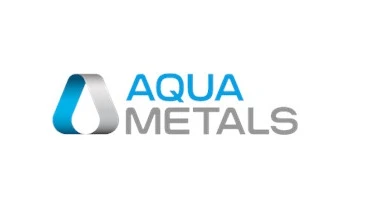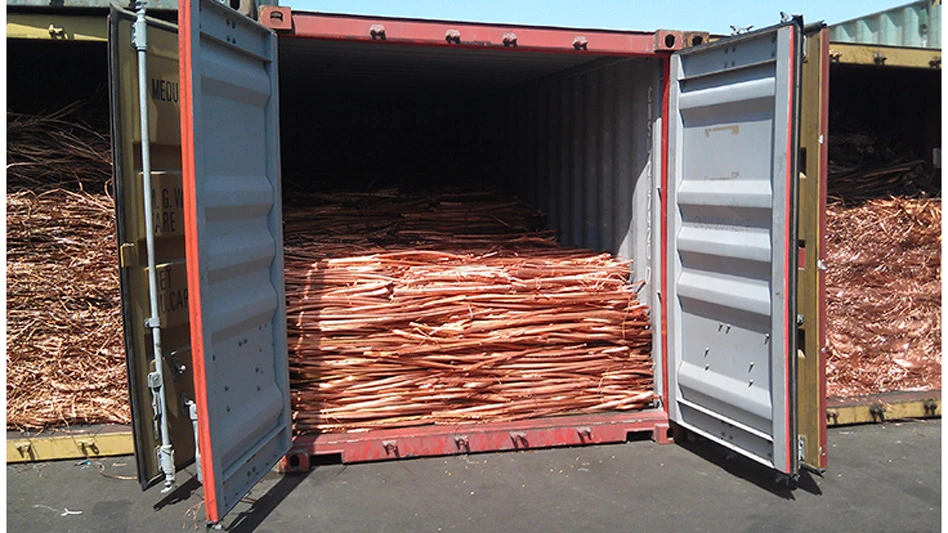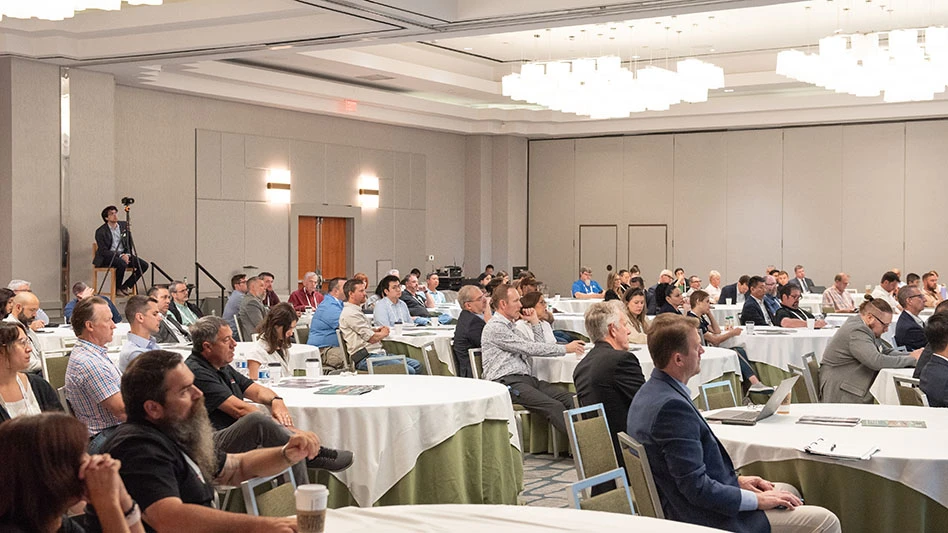
Machinex of Plessisville, Quebec, was founded in 1970 to provide machining services, parts and equipment manufacturing to industrial and agricultural clients. The company built its first material recovery facility (MRF) for Victoriaville, a small city in central Quebec, in 1985 and, since then, has worked with companies and municipalities around the globe to build MRFs.
However, a recent job for Charleston County, South Carolina, is one experience Chris Hawn, CEO of Machinex Technologies Inc., the company’s U.S. division, will not forget. In 2016, the company was awarded an $8 million contract to design a recycling system for Charleston County’s new MRF that would manage 25 tons of material per hour. Because of construction and design issues, the project was paused in 2018 for a year.
During that time, the county tried to renegotiate its contract with the manufacturer, attempting to increase the size of the project while paying less. However, Machinex had manufactured 70 percent of the facility’s equipment.
Eventually, the county terminated its contract with Machinex after vetting other companies to replace the manufacturer and systems integrator. The county claimed Machinex defaulted on the contract, an allegation Hawn says is untrue.
“Something like what happened in Charleston County is very rare,” Hawn says. “We do a lot of work like this, so making sure we maintain positive relations with a municipality is one of our main focuses. It was an odd experience.”
However, Hawn says the experience was instructional for the company.
The plan’s foundation
In 2016, Charleston County contracted with Machinex and Mashburn Construction, based in South Carolina, to construct the county’s MRF. Municipal projects usually are put out to bid, and the most cost-effective bid typically is selected. However, Hawn says his company was not picked conventionally.
“The county had no say in what company was selected,” Hawn says. Instead, Charleston County worked with a consultant who required four of the best-known systems companies to submit statements of qualifications for the job, he adds.
Hawn says his company wasn’t the lowest bidder. Rather, Machinex was selected because the county’s consultant, Mitch Kessler of Kessler Consulting in Tampa, Florida, liked the company’s proposal and how flexible Machinex was willing to be in the design process. Hawn showed Kessler two options for construction, including a budget-friendly option.
In 2017, Machinex began work on a custom recycling system for the MRF, which was expected to be completed in 2018 for $24 million, according to a report from The Post and Courier, a newspaper in Charleston, South Carolina.
Cracks begin to form
Before work began on the MRF, Andrew Quigley, who ran Charleston County’s Environmental Management department, determined that project was too big for the county’s budget. The 70,000-square-foot MRF would include the processing facility, an education center and offices. Quigley told Mashburn to scale down the facility, according to The Post and Courier article written by Chloe Johnson, which affected the bale storage area and tipping floor size.
Not long after beginning construction work, Mashburn Construction discovered issues with the soil at the site. As a result, 4,000 cubic feet of toxic soil had to be removed. Soon after, Quigley resigned from his post because he learned the county had rehired Kessler Consulting without telling him. To Quigley, it felt like the county didn’t value his expertise, Johnson of The Post and Courier reports.
Originally, Kessler was rehired to review the county’s contract with a neighboring county where it was hauling its recyclables for processing during the construction of its MRF. His firm also ended up reviewing Charleston County’s MRF project and determined that the changes Quigley made were inconsistent with what the county council had envisioned.
It all falls down
Once the project was deemed inconsistent with the county’s plans in 2018, work was halted completely. The county and Kessler began working with Mashburn to include a bigger building that would centralize the collections fleet and Environmental Management offices. Machinex was asked to make new equipment for a single-stream system, The Post and Courier reports.
Machinex already had manufactured 70 percent of the equipment based on the initial proposal. As a result, Machinex and Kessler began renegotiating the company’s contract to adjust for the extra work that was involved. Hawn says his company, originally contracted for $8 million for the project, was trying to work with Kessler to scale up the project. The extra work involved meant more expenses, which is why the company renegotiated the contract to $10 million.
However, the county council wanted the company to produce the single-stream MRF for less than the $8 million bid for the original facility.
“They wanted us to make the new system at the cost of production,” Hawn adds. “That means we wouldn’t have made any profit on the work we did.”
Eventually, Mashburn Construction’s contract with the county was terminated for convenience, meaning both parties agreed on the exit. Mashburn received about $5 million for its work, according to The Post and Courier.
During contract renegotiations with Machinex, the county council began vetting new contractors for the project. Kessler told Johnson, The Post & Courier reporter, that county staff selected a group of design-build contractors that it asked to submit proposals rather than publicly soliciting for bids, while he contacted sorting equipment manufacturers to ask for their proposals.
He told the paper, “Council then wanted, appropriately, to look at, well, is that the best and right company for us? It wasn’t like, ‘Hey, I’m giving it to my uncle who makes MRF equipment in, you know, Tennessee. These were all leading, national, reputable firms.”
Neither Kessler nor the county council responded to interview requests from Recycling Today.
Hawn says his company was not aware that the county was vetting contractors again until former Charleston County Attorney Joe Dawson told him. (Dawson also ran the county’s solid waste program before Quigley was hired and was re-engaged after Quigley left, The Post & Courier reports.)
In 2019, an attorney for Machinex sent the county a letter claiming it had violated its procurement code in soliciting bids for a new design-build contract.
The county drew up contracts with a different manufacturer in 2019. The following year, the county claimed Machinex had defaulted on its contract and terminated it, Hawn says.
When its contract was terminated by the county, Machinex had made $2.7 million on the $10 million contract it had negotiated for the extra work.
Dodging the debris
While the two entities eventually went their own ways, Hawn says he intends to apply lessons he learned through this experience in future contracts.
Maintaining a good relationship with municipalities is key for manufacturers, even if contracts don’t work out in the end, because municipalities communicate with each other, Hawn says, and one bad interaction could make a manufacturer look like it is difficult to work with.
Hawn says one of the main ways a company and municipality can maintain a good relationship is by having good project management and keeping all parties informed about progress, which shows a company is working in good faith.
“The most common characteristic of a company that maintains a positive relationship with a community is … an efficient service team,” Hawn says.
Despite the company’s best efforts, communication with the county broke down because of issues with the new contract, Hawn says.
Effective communication and clear documentation are critical, he says. Clear communication allows companies and municipalities to keep track of work, solve issues and maintain civility regardless of disagreement. Good documentation allows a company to provide references and records of communications to a municipality if issues arise.
Hawn suggests that municipalities and manufacturers get to know the consultant who is working on the project. This means knowing the consultant’s record of accomplishment and how he or she handles relationships with other companies.
Hawn says Machinex did not work directly with Kessler in the past, though while working with the city of Clearwater, Florida, on a MRF, Kessler intervened on behalf of Pinellas County and told the city that because the county was building a MRF, the city could not build one also.
If a relationship begins to turn sour, Hawn says the best way for all parties to minimize damage is through swift and efficient legal action.
Hawn says that while Machinex considered suing Charleston County for violating its procurement laws because the county was vetting other companies while Machinex was still under contract, the firm decided against it.
“We examined the pocketbooks and tried to figure out what we’d pursue and if it would be worth it,” Hawn says. “Would we pursue interference from the consulting company or financial damages caused by the county? Our attorneys said any legal action we’d take would have been long and drawn out and more expensive.”
Finding other ways to recoup its losses also played a role in whether Machinex would pursue legal action. Hawn says the company evaluated the machinery it had from the project and decided it could make up some of its losses by selling the equipment for parts. So far, Machinex has sold 20 percent of the machinery it made for the county, he says.
Even though Hawn says Machinex maintained good project management with Charleston County, the relationship still broke down.
“The most important thing is to trust your instincts,” Hawn says. “If a tough situation walks like a duck and talks like a duck, then it’s a duck.”

Explore the June 2021 Issue
Check out more from this issue and find your next story to read.
Latest from Recycling Today
- USTR announces phased measures designed to address China’s shipbuilding dominance
- APR, RecyClass release partnership progress report
- Clearpoint Recycling, Enviroo sign PET supply contract
- Invista expanding ISCC Plus certification program
- Redwood partnership targets recycling of medium-format batteries
- Enfinite forms Hazardous & Specialty Waste Management Council
- Combined DRS, EPR legislation introduced in Rhode Island
- Eureka Recycling starts up newly upgraded MRF





